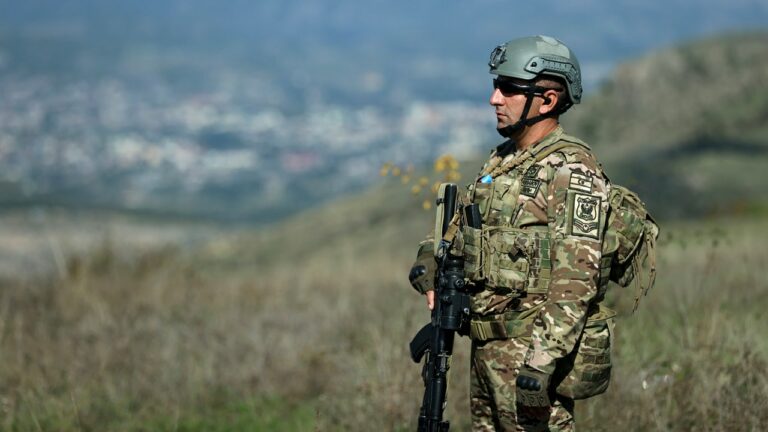Azerbaijani Authorities Arrest Former Nagorno-Karabakh Separatist Leaders
In a swift move to solidify control over the Nagorno-Karabakh region, Azerbaijani authorities arrested several former leaders of the separatist enclave. This comes following a rapid military operation that saw Azerbaijan reclaim the region, triggering a mass exodus of its ethnic Armenian residents.
Former Nagorno-Karabakh president Arayik Harutyunyan, who stepped down in early September, was among those arrested and was being transported to the Azerbaijani capital. Additionally, former separatist presidents Arkadi Gukasian (1997-2007) and Bako Sahakyan (2007-2020), along with the speaker of the separatist legislature, Davit Ishkhanyan, were detained.
The arrests follow an offensive campaign launched by the Azerbaijani army on September 19, resulting in the capitulation of the undermanned and outgunned Armenian forces in the region. As a result, the separatist government agreed to disband by the end of the year, with Azerbaijani authorities now assuming control.
The lightning operation led to an exodus of over 100,000 people, representing more than 80% of the region’s ethnic Armenian residents. While Azerbaijan has pledged to respect the rights of ethnic Armenians, many have chosen to leave the area, fearing potential reprisals after three decades of separatist rule.
Nagorno-Karabakh, a region that had been under ethnic Armenian control since 1994, saw a significant shift in 2020 when Azerbaijan regained parts of the territory, including areas previously held by Armenian forces. Azerbaijan’s presidential office has since unveiled a plan for the “reintegration” of ethnic Armenians into the region, promising equality of rights and freedoms, security, and economic incentives.
The plan includes infrastructure improvements to align the region with the rest of the country, tax exemptions, subsidies, low-interest loans, and other incentives. Azerbaijani authorities have engaged in three rounds of talks with representatives of the ethnic Armenian population in the region, with discussions set to continue.

